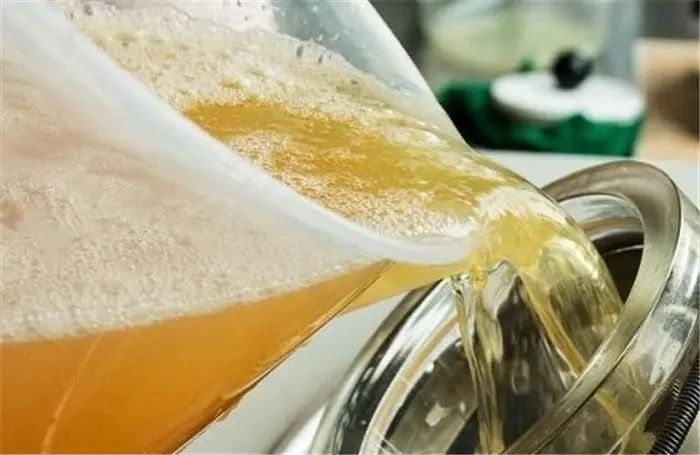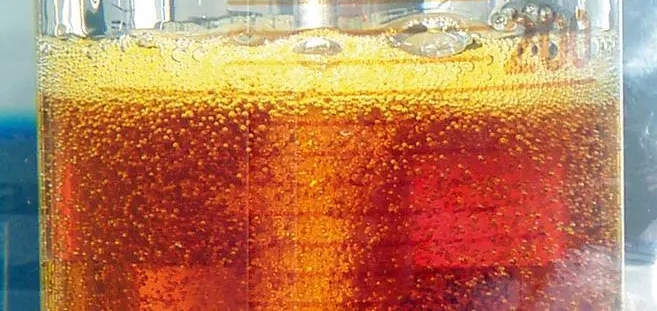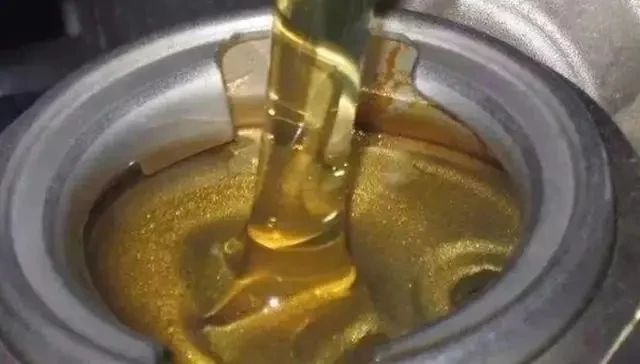What should I do if the hydraulic oil bubbles and blackens? 1. There are bubbles in hydraulic oil Abnormal machine operation In simple terms, if there are bubbles in the hydraulic oil, the first impact is the transmission efficiency, and the more straightforward construction of the machine will be abnormal! Hydraulic system abnormal sound If the machine can obviously hear a large pump noise in the cab that is different from normal construction, it is likely that the bubble increases the vibration and noise generated by the system! High hydraulic oil temperature Many machine owners have wondered why the sudden high temperature failure of hydraulic oil at the end of the machine? In fact, it is the air bubbles floating in the hydraulic oil that cause trouble! When these bubbles swim through the high pressure area, they will quickly be compressed from the normal pressure state, resulting in a sudden rise in local temperature, and the oil will deteriorate under high temperature conditions for a long time, that is, our common hydraulic oil black! 2. How to check the hydraulic bubble Since the cause of the failure is the bubble, we also understand the harm of the bubble to the machine, then immediately we have to understand how to quickly check and remove these bubbles? First check whether the oil level of the hydraulic oil tank is lower than the intake port of the variable dual pump or control oil pump. If the tank oil level is low, then the air must be waiting to enter from the oil inlet, so at this time, we should immediately add hydraulic oil until the standard oil level height, and exhaust air through the exhaust valve in time! If the oil level is within the standard range, but there is still air in the oil, then consider the leakage of the seal, you can install a barometer on the top of the tank, and then inject 0.3~0.4MPa pressure into the hydraulic oil tank, and observe the leakage point at the variable pump inlet tubing, pilot gear pump inlet tubing and the housing of the two pumps. If there is a leak point, then you can observe that there are different sizes of bubbles at the leak point when the pressure is injected. Find the leak, can be solved according to different circumstances. 3. Abnormal increase in hydraulic oil temperature What is hydraulic oil high temperature? For excavators, generally when the hydraulic oil temperature is 50~80 ° C, the viscosity and wear resistance of the hydraulic oil are in the best state, and the work efficiency is the highest. When the hydraulic oil temperature exceeds 95 ° C, the excavator efficiency decreases, the action is inaccurate and slow, and the excavator cannot work in severe cases.
The solution to the high temperature of hydraulic oil can be started from the aspects of hydraulic oil radiator, hydraulic system, hydraulic oil, driver operation: Hydraulic radiator plugging The working environment of excavators is harsh, with soil on sunny days and mud on rainy days, and insects in spring and summer. The outer radiator of the hydraulic system is easily blocked, resulting in poor heat dissipation of the hydraulic system. Therefore, it is necessary to regularly clean the radiator of the hydraulic system, and conditionally install a layer of dust filter outside the radiator. Inside the radiator, after a long time of wear and hydraulic oil carbonization, it will also produce some solid impurities like the water tank. These impurities accumulate inside the diffuser, and in serious cases will completely block the internal pipeline. Hydraulic system failure When the oil temperature of the excavator hydraulic system is high, the back pressure valve and bypass valve should be monitored for faults. If the bypass valve is in the normal open state or the back pressure valve is in the closed state, the hydraulic oil will flow directly back to the hydraulic oil tank without cooling through the hydraulic oil radiator, which will cause the hydraulic oil temperature to be too high. Hydraulic oil type selection is not reasonable Hydraulic oil with appropriate viscosity can reduce friction loss, and hydraulic oil with slightly higher viscosity should be selected in summer to reduce internal leakage. In winter, hydraulic oil with slightly lower viscosity should be selected to reduce pressure loss. Different brands of hydraulic oil, different types of hydraulic oil of the same brand, their Base Oil and additives are different, and they do not have compatibility. After the hydraulic oil is mixed, the additives will react, resulting in the failure of the additives, the formation of particles and bubbles, which will reduce the efficiency of the hydraulic components such as pumps, motors, valves and increase wear. Driver misoperation If the driver manipulates the excavator too aggressively and incoherently, the hydraulic system temperature will be too high. The oil circuit and components in the hydraulic system work under high pressure for a long time, in addition to the power loss of the pump, motor, relief valve and pipeline system, the power loss of the balance valve, buffer valve and single throttle valve is also very large, which will also cause high temperature of the hydraulic oil. 4. How to solve hydraulic oil bubble and black 1. The use of "high-frequency pulse high voltage electrostatic oil purifier" can completely control the pollution from the source, online purification to achieve oil and hydraulic system are in a clean state, the whole machine trouble-free operation, extend the service life of equipment and oil products.
2. Use non-silicon anti-foam agent. The adverse effect of non-silicon antifoaming agent on the gas release of oil is less than that of silicone oil antifoaming agent. The harm of bubbles to the hydraulic system is great, and should be paid great attention to. The way of bubble generation is more complex, at present, it is impossible and unrealistic to completely eliminate and avoid the harm caused by bubbles to the hydraulic system. However, it is very necessary to correctly understand the harm of bubbles and the main ways of producing bubbles, and take effective technical measures to prevent them as far as possible in the design of hydraulic system, so as to curb the generation of bubbles and reduce the possible harm to the lowest degree.








